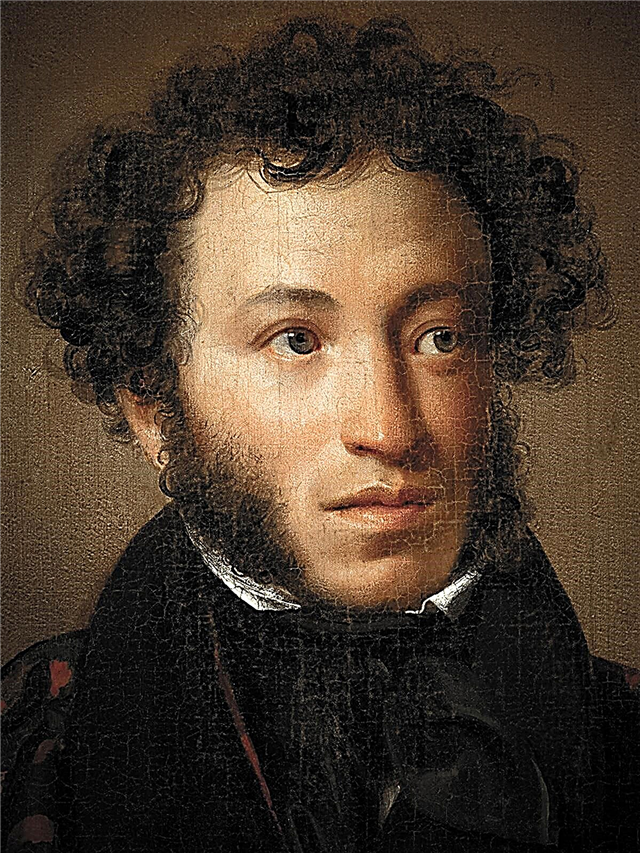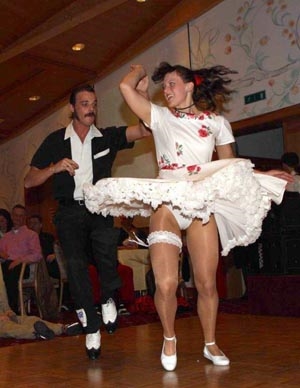The narration is conducted in the first person. The author and narrator, who owns the Lotus Institute of Beauty, draws a few strokes of a picture of Berlin during the occupation, in the cold winter of 1947: the population suffers from hunger, the furniture that survived goes on kindling, trade froze, nobody pays taxes, life stops. The Institute of Beauty is gradually declining: employees have nothing to pay, premises are not heated. The owner remains completely alone in him, but this does not depress him at all. on the contrary, he is even glad that he got rid of annoying visitors who bother him with complaints of frostbitten limbs and varicose ulcers. He acquires a machine gun, despite the risk associated with such an acquisition, and shoots all suspicious persons from the window of his Institute. The corpses of the dead, as the narrator notes, are no different from those who froze or laid hands on themselves. Rare passers-by are also not embarrassed by the look of the dead: "toothache or inflammation of the periosteum could still cause their sympathy, but not a tubercle sprinkled with snow - maybe it's just a roller from a sofa or a dead rat." The narrator is not tormented by doubts of a moral and ethical nature, for in the modern era, when “moral vibes” gradually die out in a person, the attitude towards death has radically changed: “In a world where such monstrous things happened and which rested on such monstrous principles as recent showed Research, it's high time to stop the idle chatter about life and happiness. Matter was radiation, Deity was silence, and what was placed in between was nothing. ”
At night, the Infinite addresses the narrator: “You believe that Kepler and Galileo are the greatest luminaries, and they are just old aunts. As aunts absorb knitting stockings, so these are obsessed with the idea that the Earth revolves around the Sun. Surely both of them were restless, extrovert types. Now look how this hypothesis is being folded! Now everything revolves around everything, and when everything revolves around everything, nothing else revolves except around itself. " The narrator listens to the words of the Infinite, but more often than not, he conducts a dialogue with himself. Excursions into history, geography, atomic physics and paleontology are replaced by professional discussions about the merits of all kinds of cosmetics.
Explaining why he gave his Institute the name “Lotus,” the narrator refers to the myth of lotophages. Fans of the beautiful and those who crave oblivion, eat the fruits of the lotus, because they do not need other food, their power is to hope and forget. In a world where all values have become relative, where the attempt of conceptual thinking to see the universal interconnectedness of phenomena is initially doomed to failure, only art is able to withstand a total spiritual crisis, because it creates an autonomous sphere of absolute reality. Creativity has a sacred meaning and takes on the character of a mythical and cult ritual, through which the artist “liberates” the essence of a thing, taking it beyond the finite. The artist’s isolated self creates monologue art, which “rests on oblivion, is the music of oblivion”. “The ideological content” of his Institute, he declares the following principle: “to arise, to be present only in the act of manifestation and to disappear again”.
The narrator violently falls upon the mythologized idea of life inherent in the consciousness of the average person who cowardsly reconciles with any circumstances and motivates his humility by the notorious “life” not taking into account the interests and aspirations of an individual person, subordinating him to his “eternal goals”. The narrator pronounces a harsh sentence of “life”: “This is a spittoon in which everyone crap, cows, and worms, and whores, this is the life that they all devoured with skin and hair, its impassable dullness, its lower physiological expressions like digestion, like sperm, like reflexes - and now they have seasoned it all with eternal goals. ” In the course of these reasonings, the narrator, inexplicably to himself, suddenly feels that he loves this fierce winter, which kills all life: “let this snow forever lie and there was no end to frost, for spring stood before me like a burden in it there was something destructive, she unceremoniously touched that autistic reality that I only had a foreboding, but which, unfortunately, left us forever. ” However, the narrator hastens to add the following: he is not afraid of spring because of fear that the snow will melt and numerous corpses of people whom he shot will be found near the Institute. For him, these corpses are something ephemeral: "In an era when only the mass means something, the idea of a separate dead body gave romance."
The narrator is proud that he does not come into conflict with the spirit of the time in which his being takes place, or rather, is motionless. He accepts everything as it is, and only contemplates the stages of the spiritual history of the West, although he himself is as if outside of time and space, declaring these latter “phantoms of European thought”. He conveys his impressions in the form of free associations: “It was morning, the rooster crowed, he shouted three times, emphatically calling for betrayal, but there was no longer anyone who could be betrayed, as well as the one who betrayed. Everything was asleep, prophet and prophecy; on the Mount of Olives, dew lay, palm trees rustled in an imperceptible breeze - and then a dove flew up. The Holy Spirit, its wings cut the air almost soundlessly, and the clouds took it, he no longer came back - Dogme came to an end. " The narrator refers to the dogma of man, of homo sapiens. He explains that there is no longer any talk of the decline in which man, or even race, continent, a certain social system and historically developed system, no, everything that happens is just the result of global shifts, due to which the whole creation as a whole is devoid of the future: comes the end of the Quaternary period (Quaternary - Quaternary) corresponds to the last period of geological history, which continues to this day. - V.R.). However, the narrator does not dramatize this situation facing humanity as a species, he prophetically proclaims that the “reptile that we call history” does not immediately and not suddenly “curl up”, that new “historical” eras await us, and the nearest picture of the world will most likely be “an attempt to combine mythical reality, paleontology and analysis of brain activity”.
In society, the narrator foresees two main trends: rampant hedonism and life extension at any cost with the help of fantastically developed medical technology. The narrator is convinced that the era of capitalism and “synthetic life” has just begun. The impending century will take humanity in such a vise, put people before the necessity of such a choice that it will be impossible to avoid it: “The coming century will allow the existence of only two types, two constitutions, two reactive forms: those who act and want to rise even higher, and those "who are silently waiting for change and transformation - criminals and monks, there will be nothing else anymore.
Despite the rather gloomy prospects awaiting humanity in the near future, the narrator is confident that his Lotus Beauty Institute will still flourish, because his services are always needed, even if people are replaced by robots. The narrator does not consider himself to be either optimistic or pessimistic. Concluding his prophetic and confessional essay, he says of himself: “I spin the disc, and it spins me, I am a Ptolemaic. I do not moan like Jeremiah, I do not moan like Paul: “I don’t do what I want, but I hate what I do” (see Rom. 7:15. - V. R.) - I am what I , I do what I see. I don’t know about any “abandonment” (I mean the expression of M. Heidegger. - V. R.), about which modern philosophers speak, I am not abandoned, I was determined by my birth. I don’t have a “fear of life” in me, of course, I don’t hang on my wife and child, coupled with a summer house and a snow-white tie, I wear blindfolds that are invisible to my eye, but at the same time I’m wearing a suit of impeccable cut, on the outside - a count, inside - a pariah , low, tenacious, invulnerable. <...> Everything is as it should be, and the end is good. "

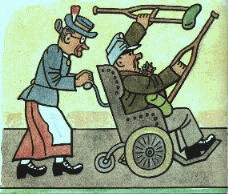
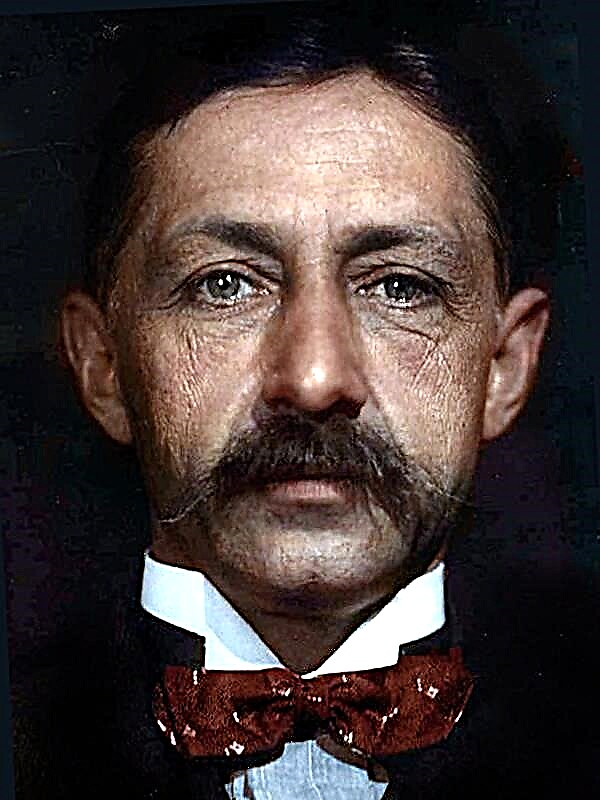


 Pot, do not cook!
Pot, do not cook!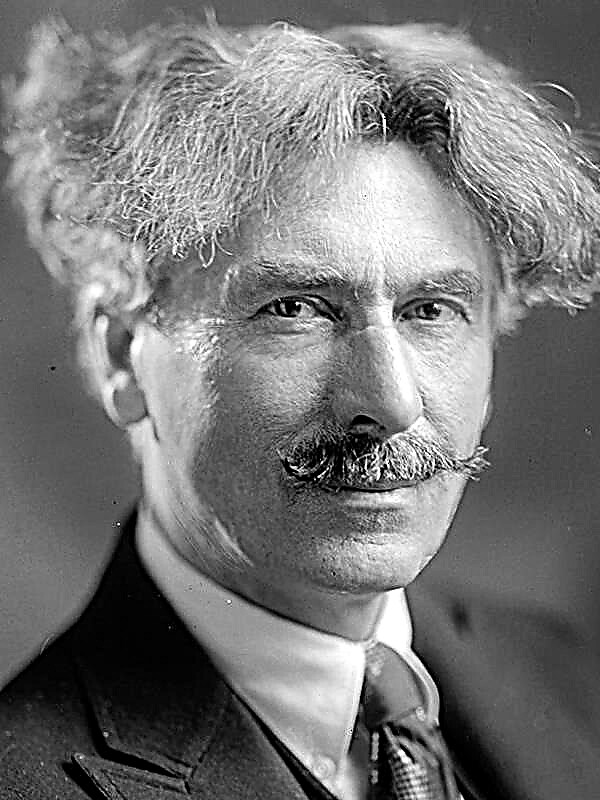
 Glass of water
Glass of water

